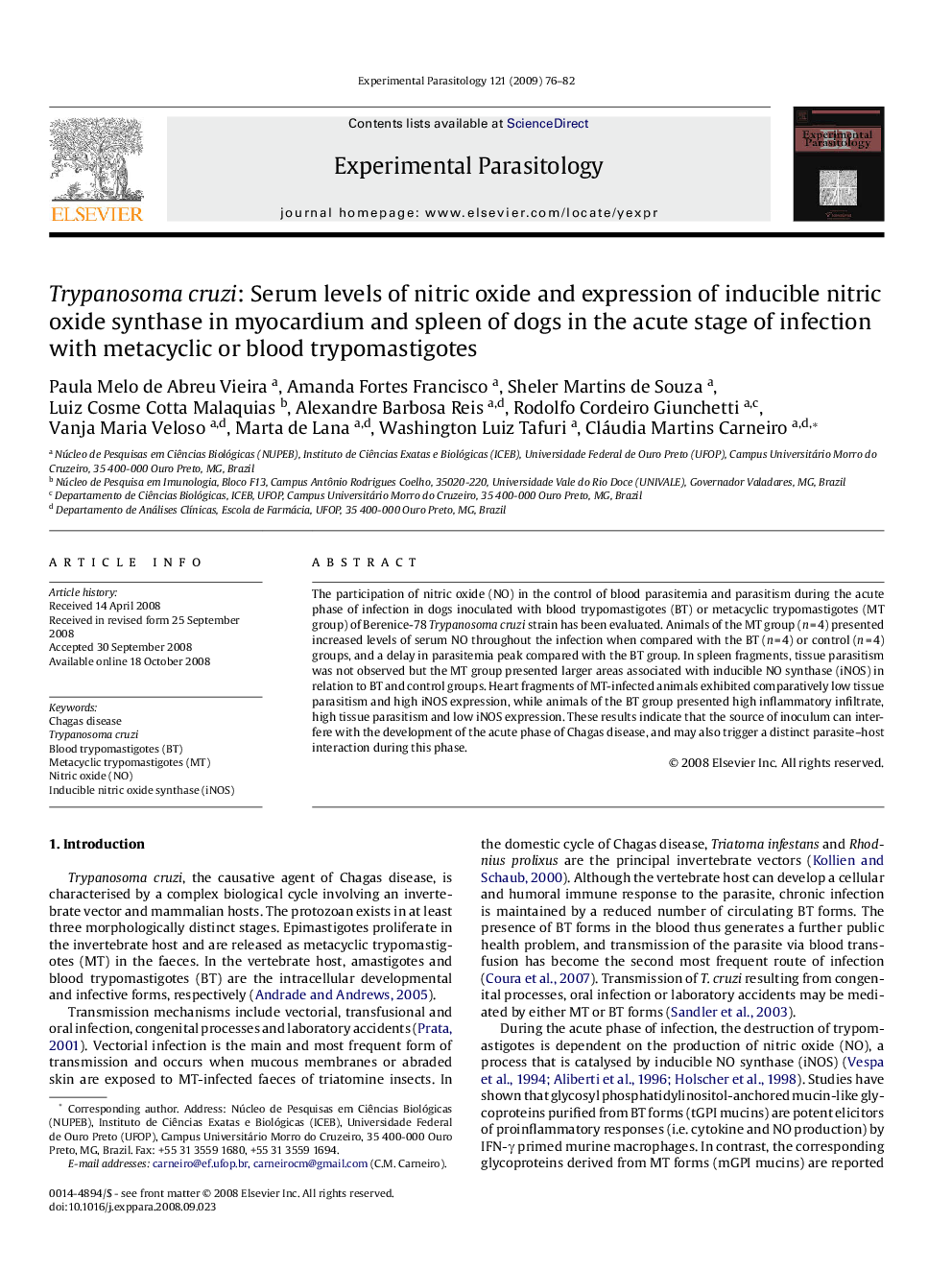| Article ID | Journal | Published Year | Pages | File Type |
|---|---|---|---|---|
| 4372041 | Experimental Parasitology | 2009 | 7 Pages |
Abstract
The participation of nitric oxide (NO) in the control of blood parasitemia and parasitism during the acute phase of infection in dogs inoculated with blood trypomastigotes (BT) or metacyclic trypomastigotes (MT group) of Berenice-78 Trypanosoma cruzi strain has been evaluated. Animals of the MT group (n = 4) presented increased levels of serum NO throughout the infection when compared with the BT (n = 4) or control (n = 4) groups, and a delay in parasitemia peak compared with the BT group. In spleen fragments, tissue parasitism was not observed but the MT group presented larger areas associated with inducible NO synthase (iNOS) in relation to BT and control groups. Heart fragments of MT-infected animals exhibited comparatively low tissue parasitism and high iNOS expression, while animals of the BT group presented high inflammatory infiltrate, high tissue parasitism and low iNOS expression. These results indicate that the source of inoculum can interfere with the development of the acute phase of Chagas disease, and may also trigger a distinct parasite-host interaction during this phase.
Related Topics
Life Sciences
Immunology and Microbiology
Parasitology
Authors
Paula Melo de Abreu Vieira, Amanda Fortes Francisco, Sheler Martins de Souza, Luiz Cosme Cotta Malaquias, Alexandre Barbosa Reis, Rodolfo Cordeiro Giunchetti, Vanja Maria Veloso, Marta de Lana, Washington Luiz Tafuri, Cláudia Martins Carneiro,
